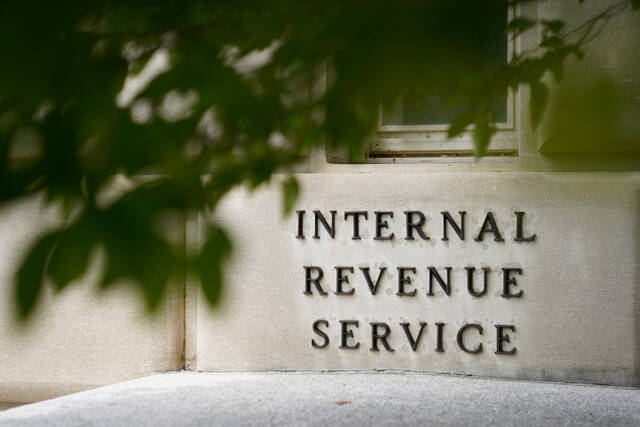Pennsylvania Sen. Bob Casey took a break from President Trump’s impeachment trial long enough to attend a Senate hearing Wednesday on the latest telephone scam afflicting senior citizens.
“For Americans who are worried about their loved ones … our efforts to stop con artists must be taken just as seriously (as the impeachment trial),” Casey said.
Casey, ranking member of the Senate Special Committee on Aging, has introduced the Stop Senior Scams Act, which would provide resources to retailers and financial institutions to help them fight financial fraud against the elderly.
Casey and the committee chairwoman, Maine Sen. Susan Collins, used Wednesday’s hearing to release the committee’s 2020 Fraud Book.
The book identified the Social Security impersonation scam as the top scam to target seniors in 2019, edging out the IRS impersonation scam. The committee’s fraud hot-line received 371 complaints regarding Social Security impersonations last year, according to the Fraud Book.
“We made progress on the IRS version of this. We need to do the same in this case, but it will take an all-hands-on-deck approach,” Casey said.
The Social Security scam usually involves a call from someone claiming to be from the Social Security Administration in order to fraudulently take money or obtain personal information from the victim. The scam resulted in the theft of $38 million from Americans in 2019, according to the Federal Trade Commission.
Among the witnesses who addressed Wednesday’s hearing was Machel Anderson, of North Ogden, Utah, who lost $150,000 to the Social Security scam in December.
Anderson told the committee she received a call from someone who said her Social Security number had been linked to a crime and she needed to transfer money from her bank account to an off-shore account.
“Worse, he told me that my Social Security number had been used to set up multiple bank accounts associated with a drug cartel, and he then transferred me to someone who claimed to be a DEA investigator,” she said. “This man told me that my family was in danger, that my Social Security number was being used by a very powerful drug cartel, and that they would be watching my every move. He told me that the only way to ensure that my family and I would be safe was to cooperate with the government, who would also be watching me.”
Anderson was told that, in order to avoid having the money seized as part of the DEA investigation, she would have to wire it to a bank in Hong Kong.
The scam that defrauded Anderson and her husband of their life savings had all the hallmarks of the Social Security impersonation scam, according to testimony taken by the committee.
The scam usually begins with an unsolicited robocall that appears on the caller ID as Social Security Administration, Collins said. Scammers attempt to scare the victim by claiming that his or her Social Security number has been suspended because of suspicious activity.
Scammers attempt to isolate the victim and claim that the only way to resolve the issue is to transfer money or provide sensitive information, Collins said.
“Many seniors who have been affected … are either too embarrassed to report their loss or don’t know who to turn to,” she said.
Speaking to the committee, Social Security Administration Commissioner Andrew Saul said anyone who suspects a scam should hang up and submit a report to the Office of the Inspector General. The office has received more than 100,000 such reports since the online form went live in November, he said.
Inspector General Gail Ennis told the committee the “crux of the problem” are the so-called gateway carriers — telecommunications companies that facilitate the entry of robocalls from foreign call centers.
Ennis said her office is working with major U.S. phone companies to block spoofed, or faked, caller ID numbers that are carried by voice over internet protocol, or VoIP, services.
“If we get the information to (the phone companies), they can prevent up to 99% of those calls getting through,” she said.
On Tuesday, the U.S. Attorney for the Eastern District of New York announced it had filed civil complaints seeking temporary restraining orders against five companies that allegedly carried millions of robocalls from foreign call centers into the U.S. telecommunications system.
The calls facilitated by the defendants falsely threatened victims with a variety of catastrophic government actions, including termination of Social Security benefits, imminent arrest for alleged tax fraud and deportation for supposed failure to fill out immigration forms correctly, U.S. Attorney Richard P. Donoghue said.
Anyone who suspects a scam should hang up and call the Senate Special Committee on Aging’s fraud hot line at 1-855-303-9470.








